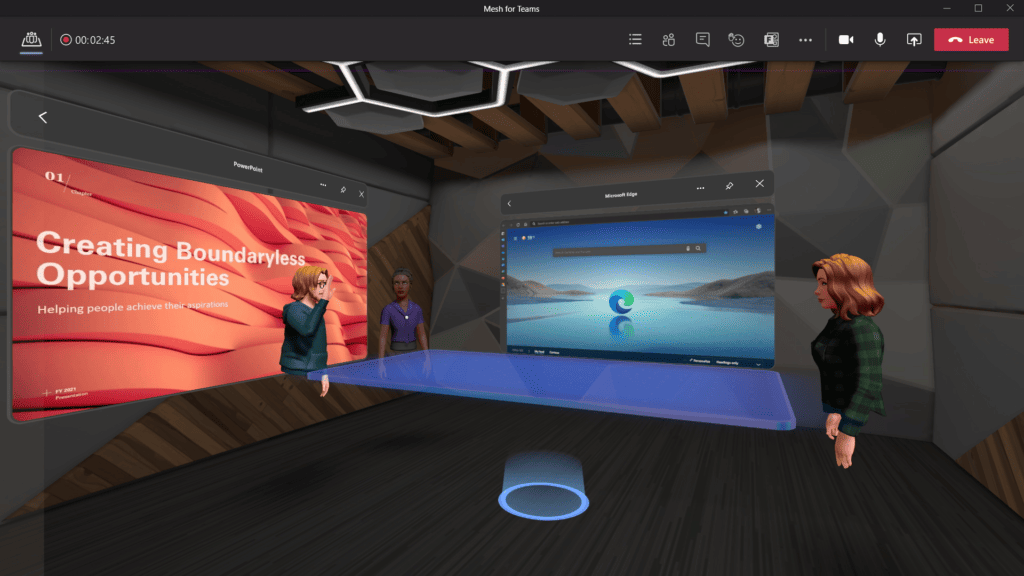Metavers for today and tomorrow.
December 24, 2021

The Facebook Inc. group has changed its name to Meta. The Facebook and Instagram social networks, as well as WhatsApp messaging, are now part of the Meta group, formerly Facebook Inc.
This name change was also an opportunity to announce the group's vision. Indeed, Mark Zuckerberg has been working on the Metavers for several years now.
Since the creation of Facebook, Mark Zuckerberg's motivation has been to enable people to connect, chat and exchange photos. In other words, to socialize online.
This vision is still consistent, particularly when in 2012 the group bought Instagram for $1 billion. It's a substantial sum, and this social network makes it possible to put one's life or that of a character on display for everyone, all over the world. There are no borders on Instagram or Facebook; people on the other side of the world can see a profile and vice versa; we're all connected in the same universe.
This word universe, in fact, is the famous metaverse, a contraction of " meta " and " universe ". Meta means beyond, or defined as "inside and outside at the same time". For example, metacognition is the ability to know that we know - an external reflection that we can perceive from within.metavers is the future of relationshipsOntheir site, we see that Meta explains the future of social connections. The company's vision is to help bring metavers to life. So the change reflects their commitment to this future, the metaverse.

The concept of social networks in a metaverse is not just to have a web page as a support, but a whole three-dimensional universe in which you can walk around, pause, contemplate landscapes, see people or avatars embodied by you and me. You could think of it as a video game, with virtual environments and avatars. With the Workplace service, it's already possible to organize work sessions with your company and all remote employees. Everyone working remotely, but all connected in the same room through the metavers to discuss, make progress on projects, attend conferences where we can connect with other people.
Microsoft has also released the equivalent of Workspace, which is a virtual place for teleworking.
In itself, the idea is not new. It's been used a number of times in the cinema. People who represent themselves in an avatar are already part of our daily lives. Some Youtubers and Tiktoker (see example here) have created their own 3D avatar that can move around thanks to motion capture. Lil Miquela, on the other hand, is a character created by two people and followed by 3 million people on Instagram. Or CodeMiko, which uses live motion capture. I myself experimented with it when I gave a lecture in February 2021 during the lockdown, creating an avatar that mirrored my facial expressions, and had a funny bear face.
It's the early adopters who are using this technology in existing networks, which is not really designed for it in the first place. This suggests that metavers could facilitate the creation of meta-humans (as is already the case with Unreal Engine) whose graphics engine enables good rendering of skin texture, hair and movement.
The metaverse is not yet another virtual world where the environment is standardized and sanitized. With the emergence of NFT and blockchain processes, we can also project ourselves into a personalized, apprehensible world. A place secured by virtually inviolable technology, where we'll be able to buy unique objects.
Facebook sensed as early as 2004 that people needed to get together, and that's why it's so successful, with over a billion daily users. Today, their vision is metavers, and the group bought Oculus for $2 billion. Again, an astronomical sum. The video game industry is powerful, and Oculus' vision is pretty clear: "Make no mistake about it: VR is a social platform, and soon it will be easier than ever to get together with your friends", we read on their website. Let's not forget that, for the time being, metavers are not just in the pre-existence stage, with VR or AR headsets still relatively undemocratized, at least in Europe. Both expensive and impractical, the experience is satisfying, but not to the point of being repeated every day. Indeed, both hardware and software innovations will still be needed to create a metaverse worthy of what the films have already shown us and successfully demonstrated. And let's not forget that on November 1, the Meta group published two scientific papers. The first is an artificial skin, the second is an algorithm for understanding touch. For several years now, the Facebook Reality Labs and the Facebook Research Center (Meta's research centers) have been developing thought-based means of communication or communication tools based on EMG (electromyography) and neural interfaces. Advances in these fields will make metavers easier to use.
Let's not forget that Facebook is the creator of the React programming code, from which the Facebook site is entirely designed. This code makes it possible to create sites today that promote very fast loading speeds. Just look at the performance of the Facebook site, despite the platform's one billion daily users!
Mark Zuckerberg's announcement shared with us his vision, i.e. the direction in which he wants to take his group for the next few decades, and will certainly bring billions of people on board with him!
As the year draws to a close, I thought it essential to take a step back and sum up what metavers are all about - they're also the future of our profession in digital marketing!What are the limits of metavers? Are we at a turning point where we need to rethink our good old vision of the digital model?
Agence BB Switzerland® is very active in research and innovation with the aim of supporting and finding business opportunities for its customers.